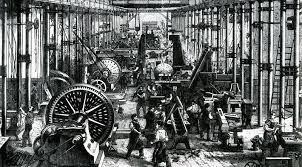Over time, more than homeowners insurance limits may be required to protect your home and belongings. This is especially true if your home’s replacement cost increases or you add significant valuable possessions to your policy.
Reviewing your policy annually to ensure your coverage meets your current needs is best. Here are some reasons why you should do so:
Ensure Your Home Is Covered for the Future
Homeowners insurance quietly protects your most significant asset every day, but most people need to take the time to review and update their policies annually. You must review your policy to maintain adequate coverage if something happens to your home or personal belongings.
Changes in the real estate market or even renovations can alter the value of your house, which in turn changes your coverage needs. In addition, other events, such as marriage, divorce, or adult children moving out of the house, can impact your premium.
New outdoor additions such as a fence, shed, or pool are also reasons to review your policy. These items are generally covered by a separate section of your policy known as other structures coverage. This is usually based on a specific value, or you can opt for a blanket coverage amount.
Review Your Deductibles
In most cases, the higher the deductible you choose, the lower your premium will be. However, make sure that you select a deductible amount you can comfortably afford to pay in case of a claim.
Some companies also offer large loss waivers, which reduce or waive the insurance policy deductible once you reach certain thresholds, such as $10,000 or $15,000. These can help reduce your premiums without impacting the level of coverage that you have.
Many things can change your insurance needs, like in the insurance agency Newark DE throughout the year. Inflation, renovations, new valuable items (like jewelry or artwork), and even the addition of a home-based business may warrant an insurance review.
Review Your Policy’s Limits
It may not be at the top of your annual to-do list, but reviewing your home insurance policy can save you money and stress in the long run. Especially after significant renovations, ensuring your policy’s dollar limits are adequate is essential.
Remember that your house and personal property coverage is based on today’s labor and materials costs. So, don’t rely on the latest estimate for your home’s value—you need to find out how much it will cost to rebuild your home today.
Also, any outdoor additions like a shed, gazebo, fence, or swimming pool are not always included in your policy’s “other structures” coverage unless you add them. Lastly, ensure your personal property coverage is high enough to cover any new valuables you’ve acquired in the past year.
Review Your Policy’s Exclusions
Homeowners’ insurance policies typically exclude certain types of damage or loss. Exclusions typically help insurers control their premiums by preventing excessive preventable claims. For example, losses caused by floods are not covered by homeowners insurance. However, customers can purchase separate flood insurance through private providers or the National Flood Insurance Program.
Other standard exclusions include damages caused by war or nuclear accidents and losses resulting from lack of maintenance (like vermin, insects, or the natural deterioration of your home over time). Exclusions vary from one policy to another.
It’s a good idea to review your coverage annually. Life changes such as getting married, having children, or starting a business may trigger new coverage needs that your policy needs to address. Your agent can also make you aware of coverage add-ons and endorsements available.
Review Your Policy’s Coverages
Having what is called an insurance-qualifying event—a significant change in your circumstances, such as having a baby, getting married, moving, or losing a family member—should prompt you to review your policy’s coverage. Also, consider checking in on your coverage if you upgrade your property, such as installing a fence or gazebo.
Other coverages include whether you have replacement cost value or actual cash value for dwelling and personal property coverage, as these options can affect your premium. It would help if you also discussed adding an ordinance or law endorsement to your policy to cover the extra rebuilding costs to comply with local laws or building codes that may have changed since your home was built.
A regular conversation with your agent is the best way to ensure that your homeowner’s policy aligns with everything you want to be covered.




